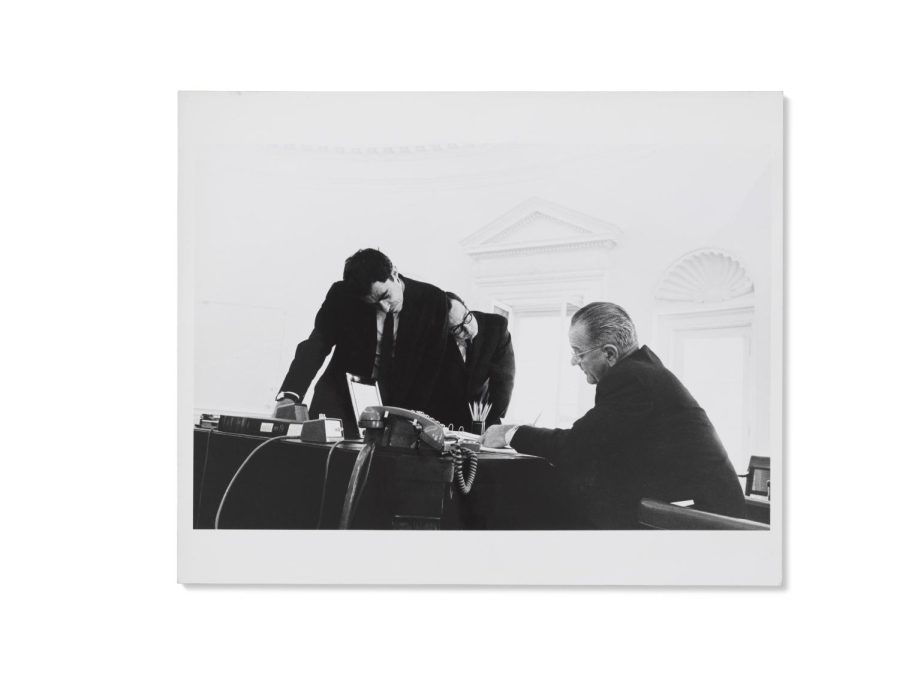Briscoe Center acquires archives from Richard Goodwin, speechwriter for JFK, LBJ
April 21, 2022
Former President Lyndon B. Johnson famously used the words “we shall overcome,” a phrase synonymous with the Civil Rights Movement, in a speech to Congress calling for voting rights in 1965. The drafts of that speech, which a presidential historian said is one of the most important of the 20th century, will soon be available at UT.
“It is not only the rhetorical pinnacle of Lyndon Johnson’s presidency, but (the speech) leads to fundamental change,” said Mark Updegrove, president and CEO of the LBJ Foundation. “It leads (almost directly) to the passage of the Voting Rights Act.”
The Dolph Briscoe Center for American History acquired the archives of presidential speechwriter and adviser Richard Goodwin and his wife, historian Doris Kearns Goodwin, for $5 million, according to an April 7 press release. The archives include speech drafts, historical artifacts, research and personal notes, such as a handwritten letter to Goodwin from former first lady Jacqueline Kennedy.
Don Carleton, executive director of the Center, said they will receive the archives from Boston this summer, which will be available to the public in 2023 after they are cataloged. A portion of the archive is already on display at the Briscoe Center, Carleton said.
History professor H.W. Brands said this archive collection will provide a new perspective on the 1960s, as most of the documents in the LBJ library are official government documents.
“We’re going to be able to see how some of those important speeches were crafted and how the language in which America’s new policies on civil rights, on the war on poverty, on the environment, (on) all sorts of things take shape,” Brands said.
Brands said Kearns Goodwin’s archive contains notes she used while writing her books, which will provide valuable insight into her processes for researchers.
“We’ve had Lyndon Johnson as filtered through Doris Kearns and her editors,” Brands said. “With good luck, we’ll be able to see Lyndon Johnson as he was portraying himself. … There’s a lot more material there than we’ve been able to see in the books.”
As a political adviser during the Kennedy and Johnson administration, Goodwin was involved with foreign policy in Latin America. Carleton said one of the things that stood out to him about the archive was a cigar box from Che Guevara.
“We’ve got this official cigar box that’s got an official insignia on the top of it from Cuba,” Carleton said. “It symbolizes what the Cuban government was trying to do at that time in terms of desperately trying to establish great relationships early in the years Castro was in power.”
Updegrove said he hopes Goodwin’s personal relationship with historical figures will give people a new perspective on them.
“It’s like an archeological dig,” Updegrove said. “I’m just hopeful we can get a glimpse of Goodwin’s experience with these important historic figures and get a sense of what they were thinking and what he was thinking at that time and how it shaped our history.”












